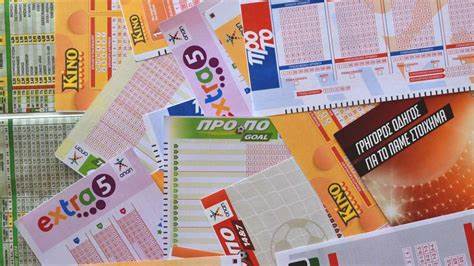Lotteries have captured the imagination of people for centuries, offering a tantalizing chance at life-changing wealth. But have you ever wondered how lotteries actually work? In this comprehensive guide, we’ll take you through the intricate mechanisms that power these games of chance, shedding light on everything from ticket purchase to jackpot payouts.
Ticket Purchase
The journey begins with the purchase of a lottery ticket. These tickets are sold at authorized outlets, online platforms, or through mobile apps. Each ticket contains a unique combination of numbers or symbols that correspond to the potential winning numbers in the draw.
The Drawing Process
At predetermined intervals, a lottery drawing takes place. The method of drawing varies – some lotteries use machines that release numbered balls, while others rely on electronic random number generators. The goal is to ensure complete randomness in selecting the winning numbers.
Odds and Prizes
Lotteries offer a range of prizes, with the most coveted being the jackpot. The odds of winning the jackpot are determined by the total number of possible combinations and the specific rules of the game. Smaller prizes are also available for matching a subset of the winning numbers.
Jackpot Accumulation
If no one wins the jackpot in a drawing, the prize amount often rolls over to the next drawing. This can lead to massive, record-breaking jackpots that capture widespread attention.
Syndicates and Pooling
Many participants choose to join lottery syndicates or pools, where they contribute money to purchase multiple tickets collectively. This increases the group’s chances of winning but also means that any prizes are shared among the members.
Ticket Validation
After a drawing, ticket holders can check their numbers against the winning combination. In some lotteries, players can scan their tickets using mobile apps or automated machines for quick validation.
Claiming Prizes
Claiming a prize typically involves presenting the winning ticket to the lottery operator. The process varies by region and can involve verification checks to ensure the ticket is genuine.
Taxation
In many countries, lottery winnings are subject to taxation. The tax rate and threshold can differ significantly. Some governments tax lottery prizes at a flat rate, while others apply progressive taxation based on the prize amount.
Anonymity
The option to remain anonymous when claiming a lottery prize varies by location. Some regions allow winners to keep their identities confidential, while others require public disclosure.
Funding Public Programs
In several countries, lotteries are operated by government agencies, and a portion of the revenue generated from ticket sales is used to fund public programs. These can include education, healthcare, and infrastructure projects.
Responsible Gaming
To address potential issues related to problem gambling, many lotteries promote responsible gaming. This includes educational campaigns and support services for individuals facing addiction.
Legal Regulations
Lotteries are subject to specific legal regulations in different jurisdictions. These regulations cover various aspects, including ticket sales, prize distribution, transparency in draw procedures, and the protection of participants.
Conclusion
Lotteries are fascinating games of chance that have evolved over centuries. Understanding the intricacies of how lotteries work, from ticket purchase to prize claims, allows participants to make informed decisions. While lotteries offer the allure of massive jackpots, it’s essential to approach them responsibly and be aware of the associated odds and taxation rules.

